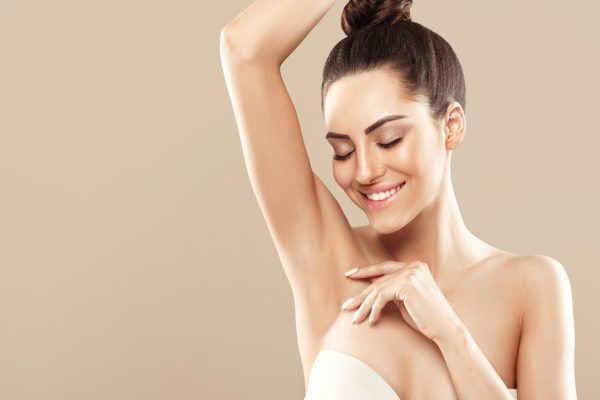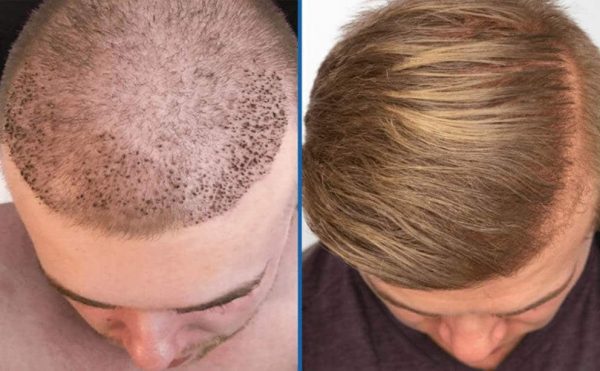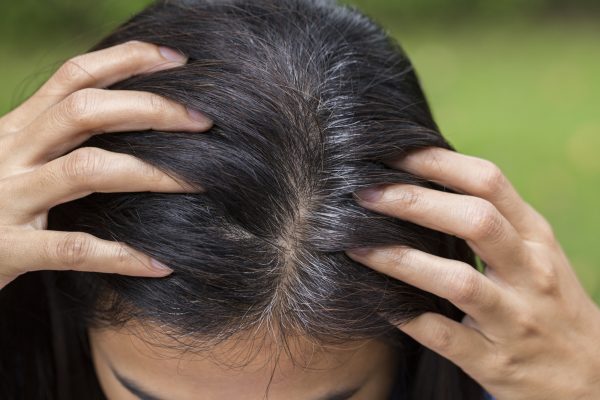Hair extensions have long been used to enhance one’s hair’s look, fullness, and length. Wigs were widely regarded as social indicators of one’s social rank, beauty, health, and standing in both Ancient Egypt and Rome.
Christina M. Jenkins devised the “HairWeeve” in 1952, which she patented as “a technique and apparatus by which commercial human hair [may] be firmly connected to the living hair on the head,” giving birth to the modern-day weave.
Weaves are a type of hair extension that is sewn onto natural hair that has been braided on the scalp. Today, we have less-permanent solutions like clip-in extensions as well as more permanent ones like gluing.
While hair extensions may improve the appearance of one’s hair, may they harm the health of the hair and scalp? Regrettably, the answer is yes. Trichologist Dominic Burg, Ph.D., board-certified dermatologist Stephen Shapiro, MD, and Eternal Hair & Esthetics CEO Abe Ayesh discuss how hair extensions might affect hair loss in the video below.
GET TO KNOW THE EXPERT
- Dominic Burg, Ph.D., is the head scientist at Evolis Professional and a trichologist. He focuses on the mechanisms that underpin hair cycle, hair loss, and hair aging.
- Stephen Shapiro, MD, is a board-certified dermatologist and Shapiro MD co-founder.
- Eternal Hair & Esthetics was founded by Abe Ayesh.
Hair Extensions Types
When it comes to hair extensions, the sky is the limit. I’m sort of joking. “There’s a vast selection of hair extensions available,” Burg says. “Tape in, clip in, halo, ponytail, fusion, keratin, weaves, microbeads, weft, and more techniques.” These can be manufactured from either human or synthetic hair. They differ in terms of quality, duration of use, convenience of application (professional or at home), and the risk of causing harm to your hair and roots.”
So, what exactly is all of this?
Tape-in extensions are medical-grade tape that adheres to the hair’s root. Because the connection is almost impenetrable, long-lasting extensions must be properly removed.
Extensions for clips: Clip-in extensions are temporary hair extensions that clip into your own hair. They are easily installed at home.
Halo extensions: Halo extensions are formed like the crown of your head and sit atop the hair with a concealed wire rather than attaching to the hair. At home, halo extensions may be readily applied on the head.
Ponytail extensions are pre-made ponytails that adhere to your hair with clips or elastics and do not require professional assistance.
Fusion/keratin extensions are applied strand-by-strand and have adhesive pre-installed at the top of each piece to adhere to the hair. They are then connected to your natural hair using a technique that bonds the extension to it. Professionals must apply and remove fusion and keratin extensions.
Bead/weft extensions are created from actual human hair and are fastened to the head by a professional using a bead that clamps and lies flat.
You may also like: Hair Loss in Women You Need To Know
Hair Extensions: Can They Cause Hair Loss?
While the reasons, severity, and specifics differ, the basic response is: Yes, hair extensions can cause hair loss. “Hair extensions may rapidly add volume and length to your hair, so we understand the desire to use them,” adds Ayesh.
“However, the answer is yes—they undoubtedly can cause hair loss.” “Traction alopecia is defined as hair loss caused by the tugging of the hair follicle from the scalp.” It can be caused by overuse or incorrect application of hair extensions.”
According to the experts, different types of extensions may provide a varied amount of hair loss danger. “Weaved in extensions and microbead-type extensions will be the major culprits in this regard.”
These are frequently placed near to the root and worn for long periods of time (several months) and, if done poorly or too firmly, can harm the follicle, called the root,” Burg adds. “Each follicle is linked to a tiny muscle called the arrector pili muscle, which can be injured by repetitive or sustained pressure from tight weaves or improperly placed extensions.”
“Once the muscle is injured and disconnected from the root, the root may die, resulting in hair loss,” he explains. It’s also worth noting that particularly long and heavy extensions, regardless of type, can have the similar effect on the follicles, as the sheer weight of the extra hair can harm the root, especially if the weight is tugging on a tiny or isolated number of strands.”
When questioned if certain persons are more prone to hair loss from extensions than others, the experts concurred once more. “If you already have undesirable hair loss, using extensions might aggravate the problem,” explains Shapiro. “Weakening hair may make it more vulnerable to this strain.” If you have other reasons of hair loss, use hair extensions with caution to prevent putting too much strain on your hair.”
Those who are not yet suffering undesirable hair loss should be aware that additional severe treatments to your hair, along with hair extensions, might increase your chances of having the problem. “People who color their hair frequently or submit their hair to chemical treatments are more likely to have hair loss since the hair breaking and damage is already present,” says Ayesh.
It’s also critical to recognize the red signals that usually appear with extensions before hair loss happens. “If your scalp feels painful or irritated when wearing extensions, you may be placing yourself at risk for traction alopecia,” Shapiro adds. “Without correct management, irreversible scarring can ensue, and temporary hair loss can progress to permanent hair loss.”
You may also like: Best Hair Growth Shampoos, Highly Recommended By Experts
How to Prevent Extension Hair Loss?
While hair extensions can be destructive, there are measures to help your hair stay healthy (and length). “The greatest method is to relax your follicles,” Burg says. “Don’t wear the extensions for too long, and alternate the attachment places to put strain on various follicles.” If you use permanent or semi-permanent extensions, ensure sure they are done by a skilled specialist.”
While this does not ensure hair preservation, it can frequently aid in the process. That being said, the best strategy to minimize hair loss from extensions is to avoid them completely, especially if your hair is already damaged. “If you already have thin, fine hair or are experiencing active hair loss, using hair extensions may increase your hair damage and thinning,” adds Ayesh.
“Those with regular or thicker hair who want to use hair extensions should understand and follow correct usage recommendations, and the scalp should be provided resting times so that the hair follicles are not constantly tugged.” Clip-ins are by far the safest because they may be removed before going to sleep each day or after a particular occasion.”
Shapiro also mentions that taking care of your hair and extensions is the final crucial component in preventing hair loss. “The most apparent technique to avoid hair loss from extensions is to stop wearing extensions,” he emphasizes. “Invest in excellent hair care products to enhance the condition of your natural hair, but if you want to continue wearing extensions, taking care of your natural hair can help counterbalance their negative effects.”
As a result, I strongly suggest Shapiro MD’s shampoo, conditioner, and leave-in daily foamer. These formulae contain powerful botanical components that have been demonstrated to combat the effects of dihydrotestosterone (DHT), a hormone known to induce hair loss. These components are also high in antioxidants, which can help protect against the impacts of environmental stressors like sunshine and pollution.”
“Minoxidil is another fantastic choice for people who desire thicker hair,” Shapiro adds. “Minoxidil dilates blood vessels in the scalp, allowing more vitamins and nutrients to reach the hair follicles.” This maintains your hair follicles healthy, robust, and ready for new growth.
You may be interested in: How To Use Minoxidil For Hair Loss?
While wearing extensions, keep your hair clean and clear of product buildup, such as hairspray, which can leave hair thick, brittle, and prone to breaking and shedding. You should also avoid using hot styling equipment as much as possible.”
Alternatives to Hair Extensions
Given that hair extensions are not the healthiest option for your natural hair, we sought the experts for the next best options. There isn’t really a solution for it… yet.
“There is no fast answer for getting long, beautiful hair,” Burg adds. “It takes time.” Many ladies use extensions because they are unable to grow their hair past a specific length. This is frequently misdiagnosed as a breakage or hair quality concern, but it is simply a reflection of the duration of the hair cycle.
Instead of extensions, you can choose for a long-term solution by taking care of your hair cycle. Making certain that your scalp and body have what they require is crucial to sustaining a healthy cycle.”
How do you maintain a healthy hair cycle? Burg provides his best advice:
“Ensure that you obtain adequate zinc, B vitamins, iron, and vitamin D.” Make an effort to keep your stress levels low. Supplements can aid with vitamin levels as well as stress.”
Let’s check: Could Vitamin D Deficiency Cause Hair Loss?
“Care for your scalp with a serum that contains antioxidants and anti-inflammatory actives, ideally natural—look for green tea, mangosteen, rosemary, vitamin E, and vitamin C.”
“Block FGF5 to lengthen your hair cycle.” The harmful protein FGF5 accumulates in your scalp and shortens the hair cycle; by suppressing FGF5, you may naturally lengthen your hair. When administered as part of a serum, botanicals such as Sanguisorba officinalis and Swertia chirata may inhibit FGF5.
Ayesh also offers advice on how to keep your hair healthy. “These are not substitutes,” Ayesh says, “but we do encourage adopting a few regular practices to preserve scalp health if you wish to utilize hair extensions on a daily basis.”
“There are all-natural, drug-free hair growth supplements that can improve your hair’s strength and vitality, and we always recommend switching to sulfate-free, paraben-free, alcohol-free shampoos, conditioners, and styling products as the harsh chemicals present in many hair care products can have a significant impact on your scalp health.”
In addition to utilizing gentler hair care products, using less hazardous style alternatives might be beneficial.
The frequency with which you use high heat to style your hair—blow dryers, flat irons, curling irons, hot brushes, and so on—is also a role in reducing hair breakage and loss.”
The Bottom Line
Hair extensions, it is safe to assume, give cosmetic benefits at the risk of your hair’s health (and length). While appropriate for special occasions, experts believe that the less you use it, the better.


